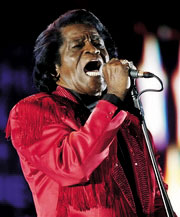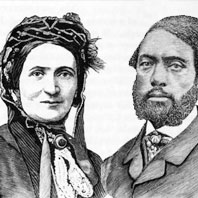
2006—James Brown dies. “Soul Brother #1”—one of the most influential figures in Soul or R&B music of the 20th Century dies at 73 while preparing for a performance. Born in Barnwell, S.C., Brown began his amazing career in 1953 and rose to fame to in the late 1950s. He remained highly popular through the 1960s and 1970s. While less popular, he continued to perform until the day of his death. Brown was also known for his soulful dancing style. His full name was James Joseph Brown Jr.
December 26

1848—In one of the most daring escapes from slavery in U.S. history, on this day in 1848, William and Ellen Craft began a 1,000-mile journey from a plantation in Macon, Ga., to freedom in Boston, Mass. The light-complexioned Ellen disguised herself as an infirmed White man and the dark-complexioned William pretended to be the faithful slave. The escape, though harrowing, was successful. But in 1850 when Congress passed the Fugitive Slave Act, the Crafts found themselves being hunted down by both slave catchers from Georgia and U.S. Marshals. Then members of Boston’s powerful abolitionist and Underground Railroad communities stepped in. They helped the Crafts flee to Canada and then to Liverpool, England, where the couple stayed until after the Civil War.

1966—The first Kwanzaa holiday celebrations take place. The alternative seven-day holiday period for African-Americans was originated by California Black nationalist Maulana Ron Karenga. Kwanzaa and its principles however, may be more widely respected than actually celebrated among American Blacks.
December 27
1873—William A. Harper, one of the most gifted Black artists of the 20th century, is born in Cayuga, Canada. He was a student at the Henry O. Tanner Art Institute in Chicago. Unfortunately, his brilliance was cut short by tuberculosis. He died in Mexico at the age of 36 in 1910.
1956—Segregation is outlawed on public buses in Tallahassee, Fla. The decision followed a six-month long boycott by the city’s African-American population. The boycott was patterned after the Montgomery, Ala., bus boycott sparked by Rosa Parks’ refusal to give up her seat to a White man.